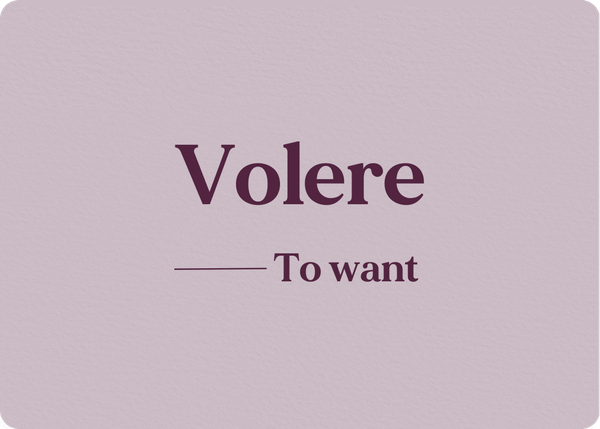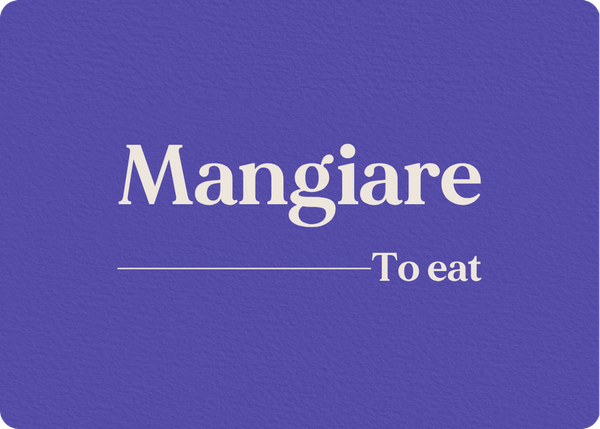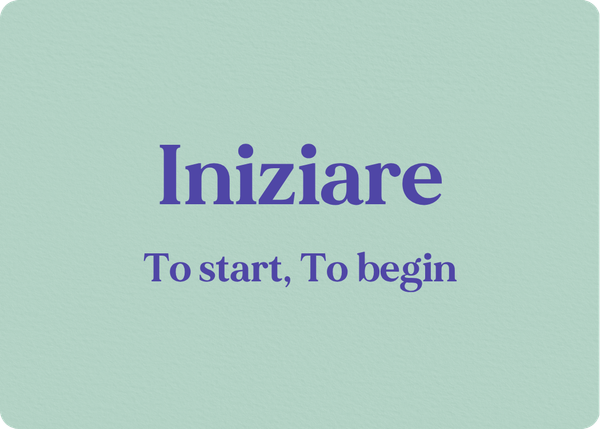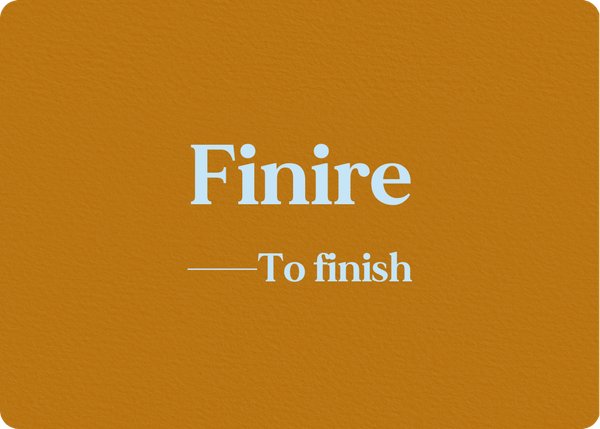What is Volere?
Volere is an irregular Italian modal verb meaning "to want", "to wish", or "to desire". It belongs to the second conjugation (-ERE verbs) but follows irregular patterns in some tenses. This essential modal verb is crucial for expressing desire, will, intention, and necessity in Italian conversation and is one of the most frequently used verbs in the language.
Key Features of Volere:
- Type: Irregular second conjugation verb (-ERE).
- Meaning: To want, to wish, to desire
- Irregularities: Present tense (voglio, etc.), simple past (volli, etc.), future (vorrò), present subjunctive (voglia), conditional (vorrei), imperative (vogli)
- Auxiliary verb: The verb volere takes the auxiliary of the verb that follows it:
- Avere - main form of compound tenses (Ho voluto - I have wanted)
- Avere - when followed by verbs that use avere as auxiliary verb (Ho voluto mangiare - I wanted to eat)
- Essere - when followed by verbs that use essere as auxiliary verb (Sono voluto andare - I wanted to go) - Past participle: Voluto
Note on reflexive verbs: If the pronoun precedes the infinitive, use essere (Ti sei voluto alzare presto - You wanted to get up early), but if the pronoun follows the infinitive, use avere (Hai voluto alzarti presto - You wanted to get up early).
Indicativo – Indicative Mood
Presente (Present Tense)
| Person | Conjugation |
|---|---|
| io | voglio |
| tu | vuoi |
| lui/lei | vuole |
| noi | vogliamo |
| voi | volete |
| loro | vogliono |
Example:
Vuoi un caffè?
Do you want a coffee?
Passato Prossimo (Present Perfect)
| Person | Conjugation |
|---|---|
| io | ho voluto |
| tu | hai voluto |
| lui/lei | ha voluto |
| noi | abbiamo voluto |
| voi | avete voluto |
| loro | hanno voluto |
Example:
I miei genitori hanno voluto comprare una casa in campagna.
My parents wanted to buy a house in the countryside.
Imperfetto (Imperfect)
| Person | Conjugation |
|---|---|
| io | volevo |
| tu | volevi |
| lui/lei | voleva |
| noi | volevamo |
| voi | volevate |
| loro | volevano |
Example:
Da bambino volevo diventare un astronauta.
As a child, I wanted to become an astronaut.
Trapassato Prossimo (Past Perfect)
| Person | Conjugation |
|---|---|
| io | avevo voluto |
| tu | avevi voluto |
| lui/lei | aveva voluto |
| noi | avevamo voluto |
| voi | avevate voluto |
| loro | avevano voluto |
Example:
Aveva voluto partire prima dell'alba per evitare il traffico.
He had wanted to leave before dawn to avoid traffic.
Passato Remoto (Simple Past)
| Person | Conjugation |
|---|---|
| io | volli |
| tu | volesti |
| lui/lei | volle |
| noi | volemmo |
| voi | voleste |
| loro | vollero |
Example:
Gli studenti vollero ringraziare il professore per la sua dedizione.
The students wanted to thank the teacher for his dedication.
Trapassato Remoto (Past Anterior)
| Person | Conjugation |
|---|---|
| io | ebbi voluto |
| tu | avesti voluto |
| lui/lei | ebbe voluto |
| noi | avemmo voluto |
| voi | aveste voluto |
| loro | ebbero voluto |
Example:
Solo dopo che ebbe voluto parlare, la verità venne a galla.
Only after he had wanted to speak, the truth came out.
Futuro Semplice (Simple Future)
| Person | Conjugation |
|---|---|
| io | vorrò |
| tu | vorrai |
| lui/lei | vorrà |
| noi | vorremo |
| voi | vorrete |
| loro | vorranno |
Example:
Dopo il concerto, tutti vorranno una foto con il cantante.
After the concert, everyone will want a photo with the singer.
Futuro Anteriore (Future Perfect)
| Person | Conjugation |
|---|---|
| io | avrò voluto |
| tu | avrai voluto |
| lui/lei | avrà voluto |
| noi | avremo voluto |
| voi | avrete voluto |
| loro | avranno voluto |
Example:
Con il loro gesto avranno voluto aiutare gli amici in difficoltà.
With their gesture, they will have wanted to help their friends in difficulty.
Congiuntivo – Subjunctive Mood
Presente (Present Subjunctive)
| Person | Conjugation |
|---|---|
| che io | voglia |
| che tu | voglia |
| che lui/lei | voglia |
| che noi | vogliamo |
| che voi | vogliate |
| che loro | vogliano |
Example:
È possibile che loro vogliano trasferirsi all’estero.
It’s possible that they want to move abroad.
Passato (Past Subjunctive)
| Person | Conjugation |
|---|---|
| che io | abbia voluto |
| che tu | abbia voluto |
| che lui/lei | abbia voluto |
| che noi | abbiamo voluto |
| che voi | abbiate voluto |
| che loro | abbiano voluto |
Example:
Mi dispiace che non abbiate voluto partecipare all’escursione.
I’m sorry that you didn’t want to participate in the excursion.
Imperfetto (Imperfect Subjunctive)
| Person | Conjugation |
|---|---|
| che io | volessi |
| che tu | volessi |
| che lui/lei | volesse |
| che noi | volessimo |
| che voi | voleste |
| che loro | volessero |
Example:
Pensavo che voleste rimanere a casa stasera.
I thought you wanted to stay home tonight.
Trapassato (Past Perfect Subjunctive)
| Person | Conjugation |
|---|---|
| che io | avessi voluto |
| che tu | avessi voluto |
| che lui/lei | avesse voluto |
| che noi | avessimo voluto |
| che voi | aveste voluto |
| che loro | avessero voluto |
Example:
Se avessi voluto, avresti potuto studiare medicina.
If you had wanted to, you could have studied medicine.
Condizionale – Conditional Mood
Presente (Present Conditional)
| Person | Conjugation |
|---|---|
| io | vorrei |
| tu | vorresti |
| lui/lei | vorrebbe |
| noi | vorremmo |
| voi | vorreste |
| loro | vorrebbero |
Example:
Lucia vorrebbe tanto comprare una casa al mare.
Lucia would really like to buy a house by the sea.
Passato (Past Conditional)
| Person | Conjugation |
|---|---|
| io | avrei voluto |
| tu | avresti voluto |
| lui/lei | avrebbe voluto |
| noi | avremmo voluto |
| voi | avreste voluto |
| loro | avrebbero voluto |
Example:
Avremmo voluto una risposta diversa da quella che abbiamo ricevuto.
We would have wanted a different answer from the one we received.
Imperativo (Imperative)
| Person | Conjugation |
|---|---|
| (tu) | vogli |
| (lui/lei) | voglia |
| (noi) | vogliamo |
| (voi) | vogliate |
| (loro) | vogliano |
Example:
Voglia la sorte essere dalla nostra parte!
May fortune be on our side!
Indefinite Moods
Infinito (Infinitive)
- Presente: volere (to want)
- Passato: avere voluto (to have wanted)
Examples:
È naturale volere il meglio per i propri figli.
It is natural to want the best for one’s children.
Aver(e) voluto troppo mi ha causato delusioni.
Having wanted too much has caused me disappointments.
Participio (Participle)
- Presente: volente (willing) - used as adjective
- Passato: voluto (wanted)
Volente o nolente, dovrai studiare per l'esame.
Whether you want to or not, you'll have to study for the exam.
Non ho mai voluto creare problemi.
I never wanted to create problems.
Gerundio (Gerund)
- Presente: volendo (wanting)
- Passato: avendo voluto (having wanted)
Volendo, potresti venire domani a casa mia.
If you want, you could come to my house tomorrow.
Avendo voluto tutto subito, si è trovato con le mani vuote.
Having wanted everything immediately, he ended up with empty hands.
The verb Volere at a glance: Key tenses you need
| Present | Present Perfect | Imperfect | Present Subjunctive | Imperfect Subjunctive | Present Conditional |
|---|---|---|---|---|---|
| io voglio | io ho voluto | io volevo | che io voglia | che io volessi | io vorrei |
| tu vuoi | tu hai voluto | tu volevi | che tu voglia | che tu volessi | tu vorresti |
| lui/lei vuole | lui/lei ha voluto | lui/lei voleva | che lui/lei voglia | che lui/lei volesse | lui/lei vorrebbe |
| noi vogliamo | noi abbiamo voluto | noi volevamo | che noi vogliamo | che noi volessimo | noi vorremmo |
| voi volete | voi avete voluto | voi volevate | che voi vogliate | che voi voleste | voi vorreste |
| loro vogliono | loro hanno voluto | loro volevano | che loro vogliano | che loro volessero | loro vorrebbero |
Conclusion
Mastering the conjugation of "volere" is essential for expressing desire, will, and intention in Italian. This irregular modal verb requires careful attention to its unique forms, particularly the irregular present tense (voglio, etc.), simple past (volli, etc.), and present subjunctive (voglia).
Remember the key points:
- Uses "avere" as auxiliary verb in compound tenses when used alone
- As modal verb, takes the auxiliary of the following verb (avere with avere-verbs, essere with essere-verbs)
- Irregular in some tenses
- Past participle is "voluto"
- Future/conditional stem changes to "vorr-"
- Essential for expressing wishes and intentions
Keep practicing with real sentences and you'll master this fundamental Italian modal verb!





